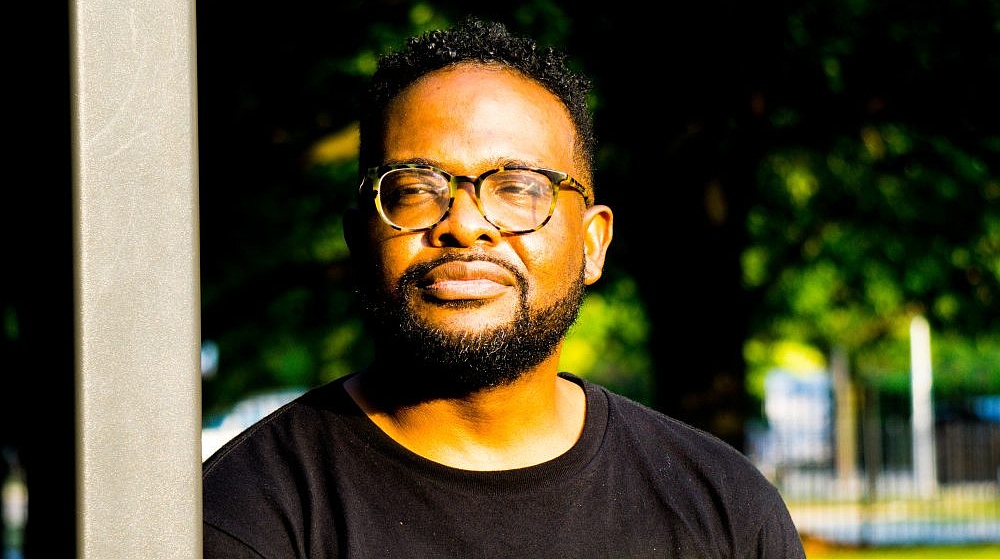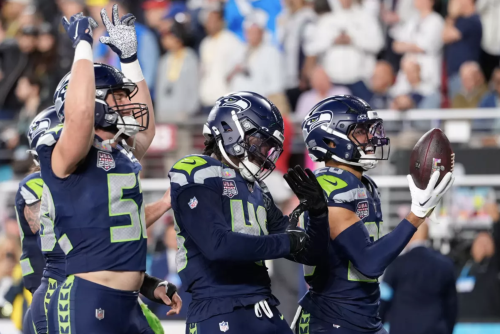Renaissance Paintings were created as an effort to pay tribute to, and evolve beyond, old ways of thought. While Europe danced between the Middle Ages and modernity, works made during this time brought about social change. Historians believe this change never truly meant equal progress or evolution; it was more about the dramatic shift in structure.
The Renaissance period, itself, was always under scrutiny; no one really knows exactly how to define it.
That’s a real Clark Jones quality. When he first started out as a comedian, he was an anomaly. He was 26, much older than the age most stand-up comics begin. He was suavely educated, equipped with a master’s degree in journalism and already had a burgeoning career in his pocket when he signed up for an open mic.
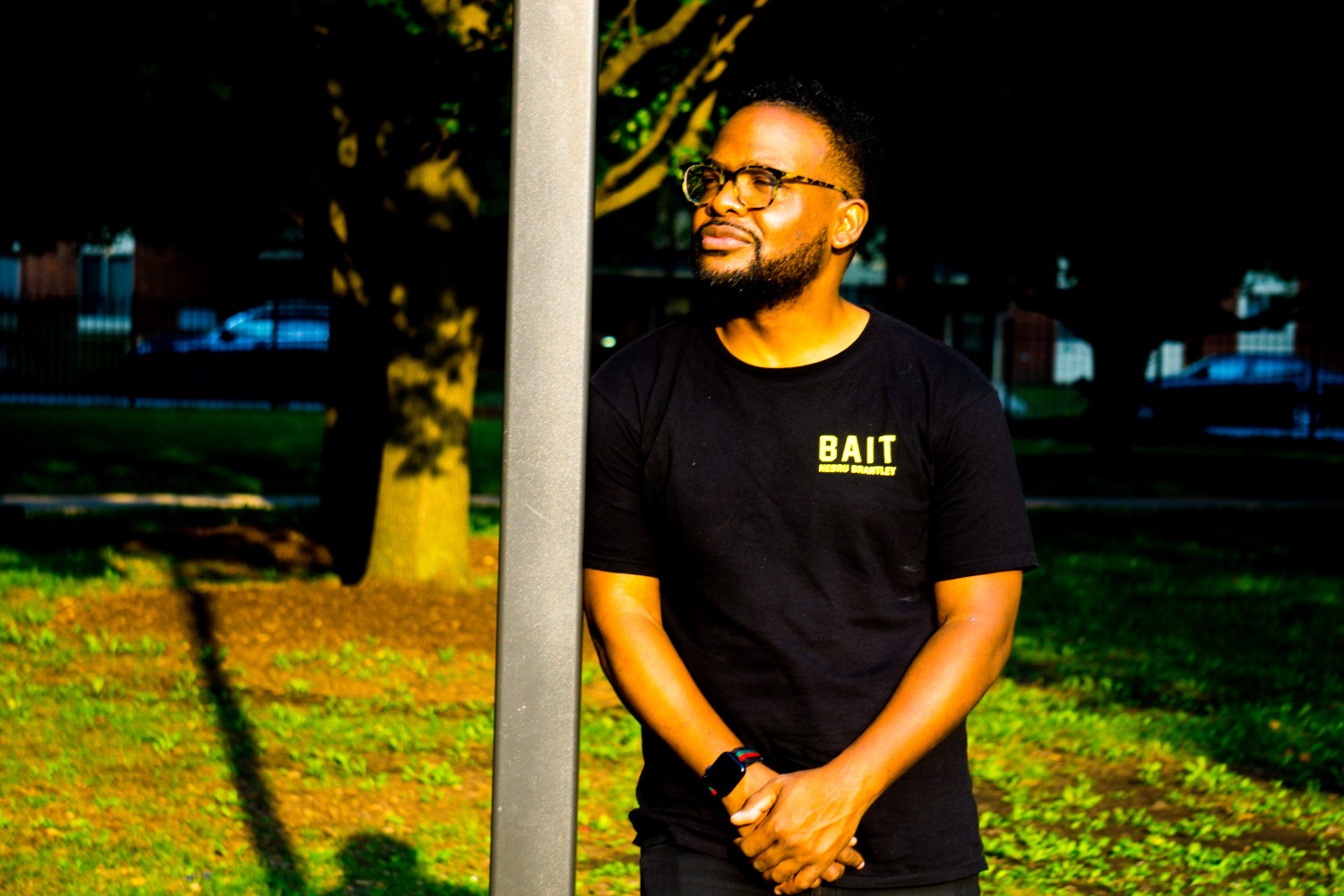
Clark strikes a pose next to Whitney Young’s Arts Building | Photo credit: Shane Anthony
The Scraps of Renaissance
Clark turned up at Jokes and Notes, a comedy club on the Southside of Chicago, which was known for its rough atmosphere at the time. Not rough in the way of off putting, but in the way that if you were not funny, the room would quickly let you know. This did not deter him, thank God.
The Renaissance was about development. In Europe, it was a cultural movement meant to expand minds. The intellectual themes blended through varying degrees of art, literature, science, technology, politics, and religion.
That’s Clark Jones; he is transcendent, and advantageously different enough to bleed through the box he was placed in. He has an appeal many comedians lack. Many legends take decades to firmly set themselves apart.
However, it did not take him long; over the years, ambition and toughness have turned him into one of the most ingenious minds in the industry.
He’s the definition of a triple threat; a performer in every sense of the word. He has appeared on platforms as huge as HBO, had his writing featured on STARZ, and had his stand-up on Comedy Central. Clark Jones also released his album, First of All, which came out hot at number one. In 2016, BET deemed him number four on their list of comedians on the rise, just seven years after he had begun.
Your Soulmate Might Be Dead – Clark Jones Stand-Up on Comedy Central
The Art of a Blank Canvas
“This was the first thing I remember fighting for.”
Clark Jones asked me to meet him outside the Arts Building of Whitney M. Young Magnet High School.
The school is situated on the West Side of Chicago, just forty-five minutes from where he grew up.
Today, he is too old to go in. Clark is in his late 30s, well groomed, with an aging beard, a mind that has seemingly lived longer than he has, and a type of fashion style that originates in the city and is kept up with great care. Ironically, he has a sketch book pinned to his waist and a backpack matching an incredible pair of sneakers. On this day, neither of us were young enough to have a student ID, but two decades ago, he was climbing a hill to breach the door.
His first obstacle was an actual test and, obviously, Clark had the right score. His next obstacle was a missed deadline, but he had the gumption to call. In what he describes as a very “Kanye like” story, the school told him to visit, since they had a low enrollment of boys. Needless to say, he won his acceptance soon after.
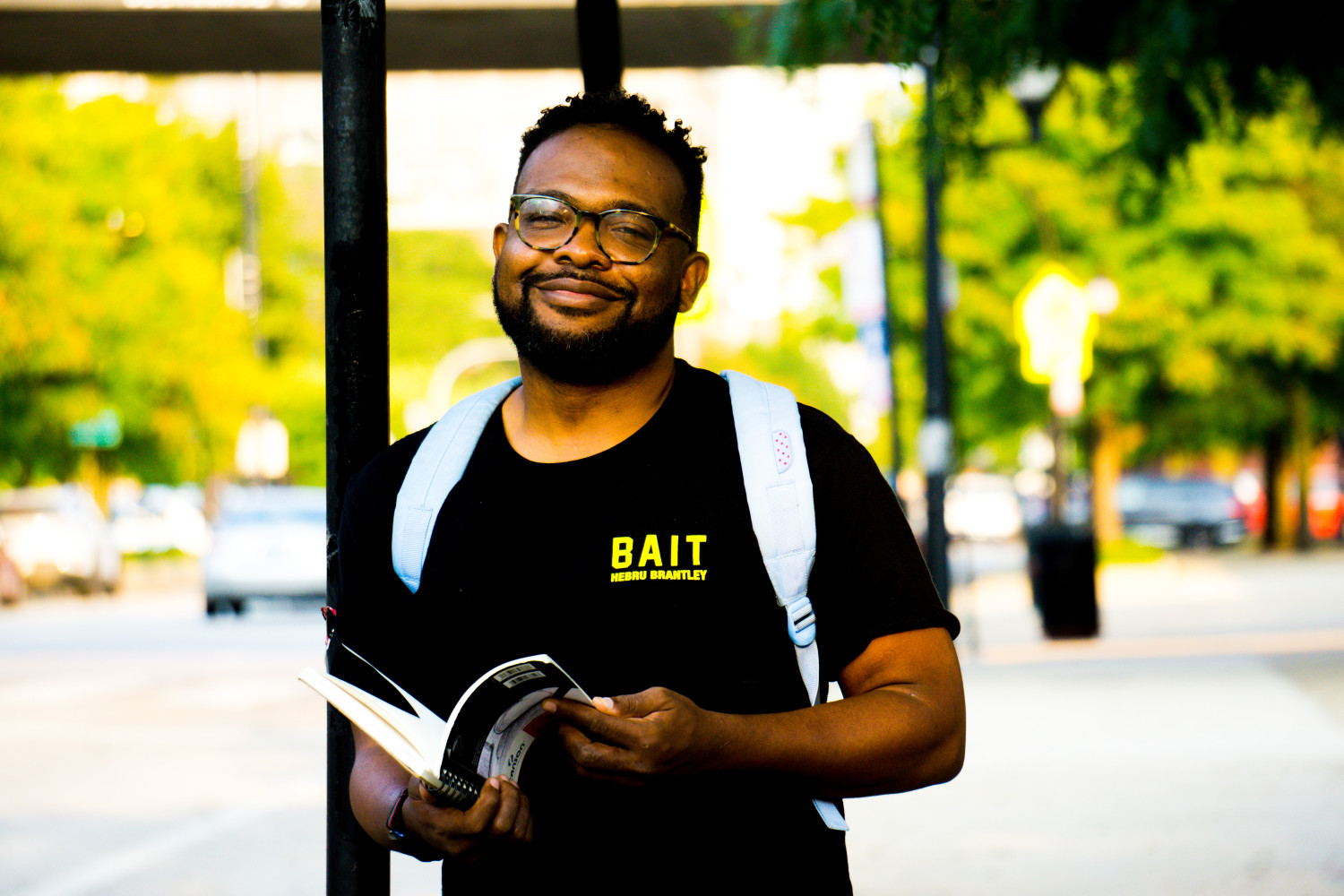
Jones flips through sketches at the 126 Bus Stop: his old route. | Photo credit: Shane Anthony
Determination, Persistence, and Support from Friends and Family
Though diversity played a role, those around Clark – especially his younger brother, Brad – saw his abilities and talent for what they were.
“He was always really smart, and athletic,” He remembers, “even since elementary school.”
His merit came from a gifted mind that explored many subjects. Though he was brilliantly curious, Clark Jones admits to being a “sheltered child.” At Whitney Young, it was diverse. He called it a “Pandora’s box of people.” It opened an entire door he never knew was there, and he wanted to seize it.
In Freshman year, he parlayed the athleticism into multiple sports. He played basketball, ran track, and cross country. A bad cold ruined his chance of trying out for football, and he had a brief stint with baseball but liked dancing more.
Within the first month, he joined Guys and Dolls. It was a shift; things began to happen that he had yet to encounter. He made his first “white woman friend” and others that would remain in his orbit until today. His experiences being a part of that team made it into some of his more highly regarded comedic material years later. Rapidly, he began to emerge from his shell into a charismatic, ambitious and humorous young man.
That’s how Will Miles, stand-up comedian best known for South Side, All That, and The Chris Gethard Show, remembers his best friend. They met freestyling during Freshman year. A shared love of music would become a bonding experience.
“He had an edge to him,” Will said, from a suite in Los Angeles. “Things most people would get clowned for, he made them look cool. He made dancing look cool, and he wasn’t nervous around the most beautiful girls.”
That skill and love of dancing was borrowed from his older brother, Marcus. Affectionately called “Piggy Bank,” he was an unbelievably important variable in his baby brother’s direction.
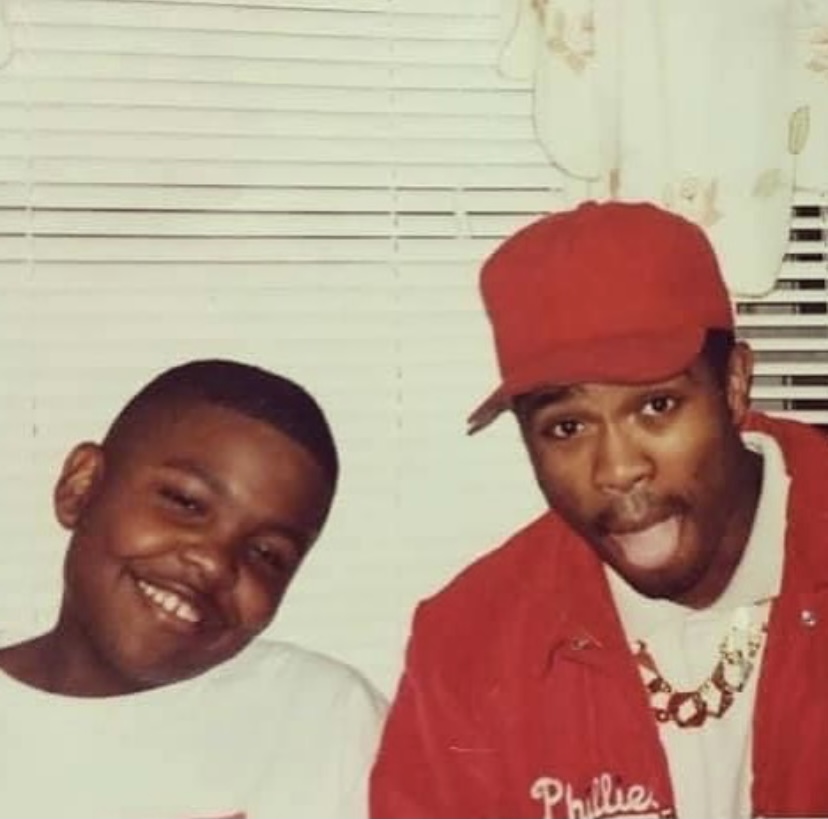
Clark Jones, left, with his big brother, Marcus. | Sourced from Instagram
Marcus Porter was a lot of things: he was an artist in multiple senses; he was a dancer, whose talent and tenacity carried him to Showtime at The Apollo, and he could draw. Also, he was the funniest person Clark has ever met and encouraged him to be funny. Lastly, he was generous, and he was a protector. At the same time, he still had a presence as a “street guy” and acted as a strong barrier to push his brother toward better pursuits.
It was painfully evident to everyone that Clark wanted to emulate him, even his classmates.
His lifelong friend, Justin Smith, remembers the group of friends looking up to Marcus as “cool and rough around the edges,” while his younger brother was seemingly the opposite. “Clark wanted to get the best of both worlds, but he’s always been an artist. I say that as sincerely as possible.”
That’s a concrete thing Will and Justin agree on: Clark Jones was naturally hilarious, in love with music, and flawlessly artsy. Will especially laments him as someone with a strong knack for roasting.
“In a Chicago high school, you’d think everybody is good at it – but he really could hold his own.” Will said. “He would roast harder, get mad, then funnier.”
Clark was unusually gifted with words and quick thinking. He remembers Mrs. Sharpe, his English teacher, quite fondly. He credits her with being the first educator he had that was worldly, allowing him to grow as a person. The same is reserved for Mrs. Noble who opened him up to literature.
“Have you heard of Henry David Thoreau?” He asked. “Something he said always stuck with me; it’s to suck the marrow out of life.”
He did just that.
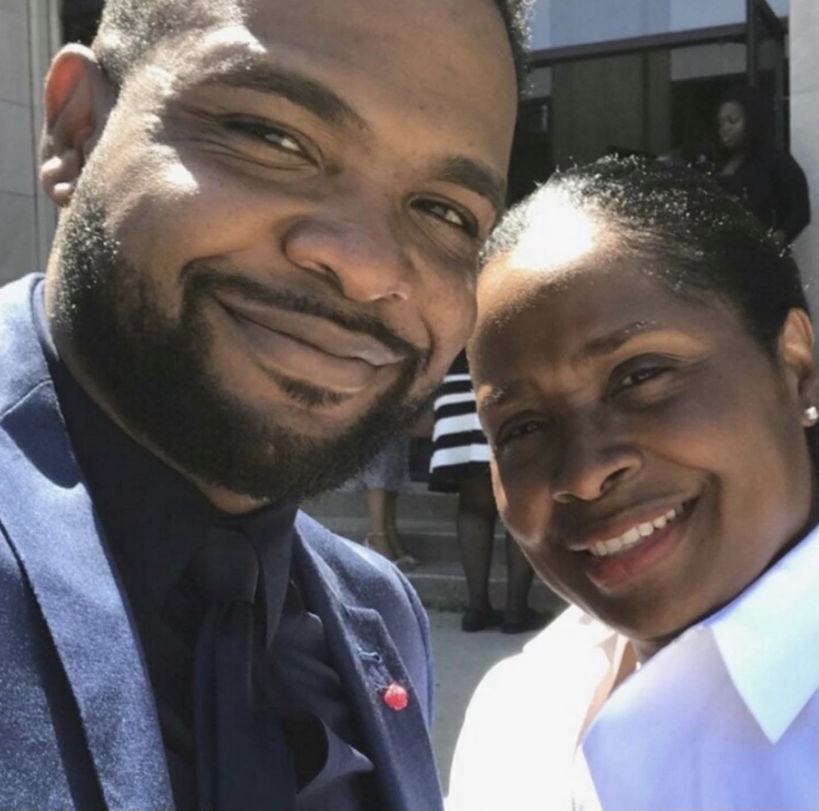
Clark, left, with his mother Denise, in an undated photo
He took chances, tried things he never had, and mastered the familiar. He was able to win admiration and attention while figuring himself out. Fortunately, the development, interests, and ambition were nurtured, as he was born to a doting mother.
He introduces a parable about two sons with an alcoholic father. One becomes an alcoholic, one doesn’t. Both for the same reasons.
“I don’t know if my mom always had the support she wanted as a kid,” he reflects on the days she would drive for an hour to pick him up. “So, whatever I did, she made sure she supported me. She would come in rehearsal and just watch me do my thing and having that support from her was all I needed.”
That never stopped. She was beyond proud when he graduated and attended Morehouse with a scholarship.
More Color, Please
There, he continued strong friendships that were growing into a brotherhood.
As his roommate, he met Julian Deshazier. He had an immediate, strong impression.
“I knew I had met somebody who,” Julian pauses. “-was as aggressive about finding his potential and competitive about life as I was. He was a very driven, kindred spirit.”
I relay this to Clark, who waits until I’m done to ask, “he said that about me?”
Deshazier remembers most, if not all, of their shared antics: the nights of partying; staying up until 3am watching Def Comedy Jam; entertaining women in dorms, with Clark making them laugh until they cried. Even his student government campaign song, “Who Clark Jones” written in the same vein of Mike Jones – which Julian, and everybody else, still sing to this very day.
“He was a renaissance guy, he was into everything and eventually, I started seeing more poetry, music, comedy, acting.”
Clark Jones got involved in the drama department and the campus newspaper. He was ever present, outgoing, and making lasting bonds everywhere he went. Despite already being in various campus pursuits, he found easier access to theater while taking classes at Spelman.
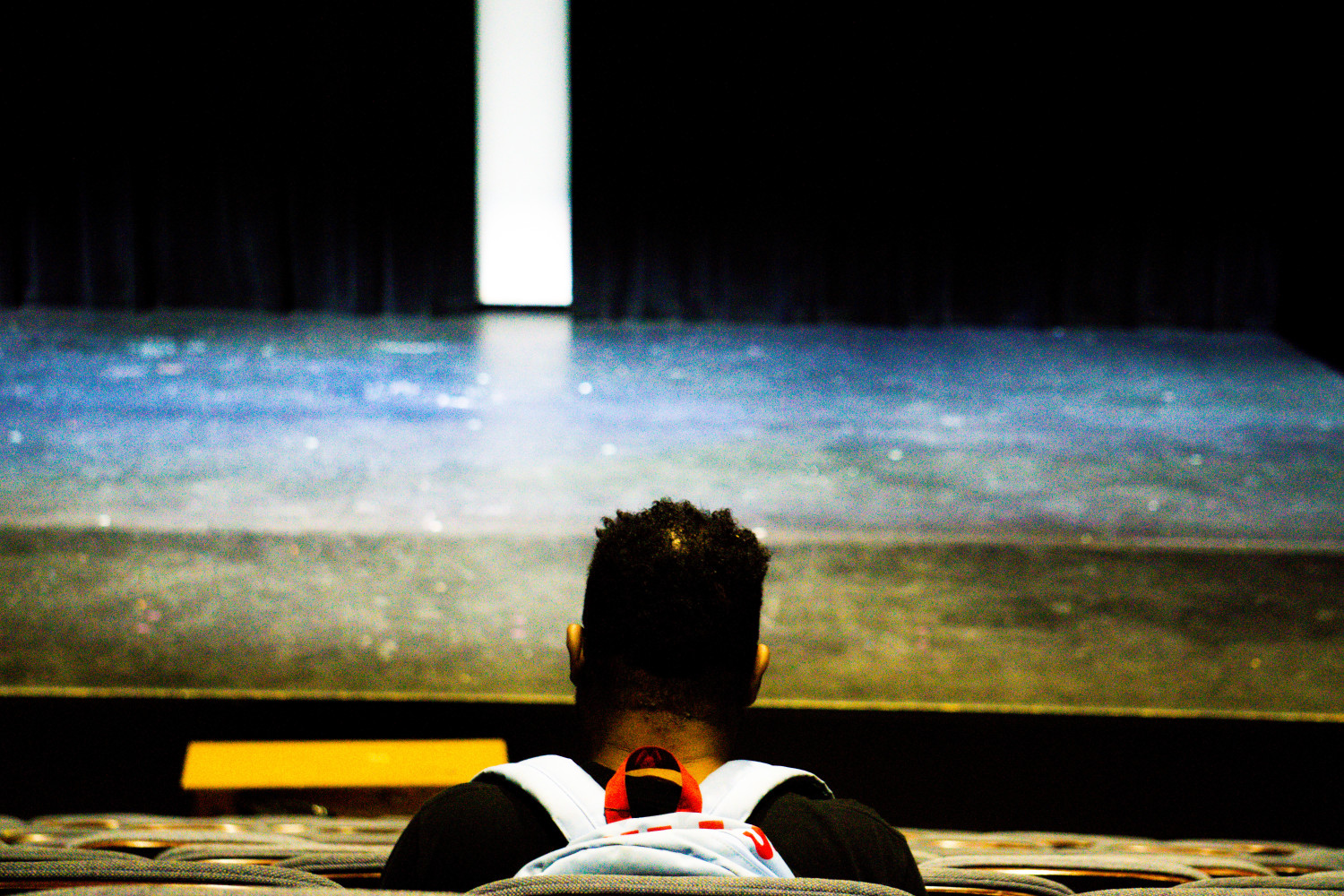
There, he met Katrina Jackson, who became the founder of iShero and landed on 35 Scholars Under 35.
“My first impression,” she remarked about him, “was someone who can light up any room with his presence and ability to have candid dialogue. He could really adapt to certain situations.”
She instantly noticed qualities that could easily carry over to a stage, even if he did not just yet. In the meantime, he graduated with a Bachelor’s in Economics.
“It’s about, this is where it went wrong,” he explains, “and this is how it gets fixed.” Jones uses those lessons for everything, whether in everyday life or his comedic pursuits. When he earned his degree, he didn’t know comedy could be a career just yet; even though many of his friends saw the early stage of a burgeoning comedian.
Colored Commentary
The Graduate School of Communications opened at DePaul, where he really wanted to be the first Black person to graduate. He was third. Something he looks back on in a classic Clark Jones way.
“Who remembers the third Black baseball player?” He waits. “Exactly. Everybody knows Jackie Robinson; nobody knows Larry Doby like that.”
He continued his education, earning a Master’s in Journalism. Midway through grad school, he started teaching. Eventually, he began working for Ebony, as well as Jet and freelanced for the Chicago Tribune while doing a weekly column for the RedEye.
He parlayed his experience, curiosity, and intelligence into landing his own radio show. Aptly named DJ Coast to Coast, it became his playhouse. He had total freedom over music and spun popular hits from everywhere.
That full Thoreau quote Clark referenced goes, “I wanted to live deep and suck out all the marrow of life, to live so sturdily and Spartan-like as to put to rout all that was not life, to cut a broad swath and shave close, to drive life into a corner, and reduce it to its lowest terms.”

Jones headlines at The Laugh Factory Chicago. | Photo credit: Shane Anthony
You could argue that Clark Jones was cornering his life when he walked into Jokes and Notes that first time. He was there for the strangest premise.
“At first, our plan was to be like Paul Mooney and Richard Pryor,” Will Miles said. “But everything he wrote sounded nothing like me. It all sounded like him. So, I encouraged him to do it himself.”
So, he did, and he stuck out like a sore thumb. He presented differently; he had secure career options, finances, and a future. Stand-up comedians are often associated with being unstable; emotionally, physically, and especially financially. Some are proud college dropouts with zero prospects.
That may explain why he, a teacher at the time, did not get a great reaction.
His first performance was muddy; his audience mildly receptive. He did not know if his jokes were as funny as they could be, only that they were rife with relevance. He had things to say, even if they weren’t the most humorous yet. That flicker of brilliance, however, was always present.
He consistently returned, signing up each time. Finally, he was able to land his first feature that his friends attended, and he had a great set, his way. After it was over, he discovered his mom was in the audience, just as she’d been all his life. He acknowledges his mother didn’t always know how to navigate it but didn’t need to in order to be in his corner. “It couldn’t have been easy to tell other people, my son is a comedian.” Yet, she did it anyway.
His friends reminisce on seeing him in his element.
“He was presenting himself to the world,” Julian remembers, “It felt like bringing together all of his gifts -he was vulnerable, he was honest – like a fish in water.”
Katrina declared herself a forever “stan and fan” of Clark Jones. She’s been there his entire comedy career and admires his raw ability to connect with the audience, no matter the color or upbringing. “It’s a greatness that he exudes. I was always extremely proud but not surprised.”
His circle had his back in the way some simply did not. Strangely, his style attracted enemies. Early on, he was confronted by other comics for perceived similarities. He decided to mine his experiences as an educator for material, a rarity at the time. However, being an outlier did not always work in his favor.
“I was never trying to go over people’s heads.”
Comedians that differ are not always given a warm reception, but there is still a determining factor: the presentation. The mechanics of making a joke land is akin to an equation: sometimes the answer is simple, sometimes it’s complicated, some may borrow elements to solve it and some go through lengths of self study.
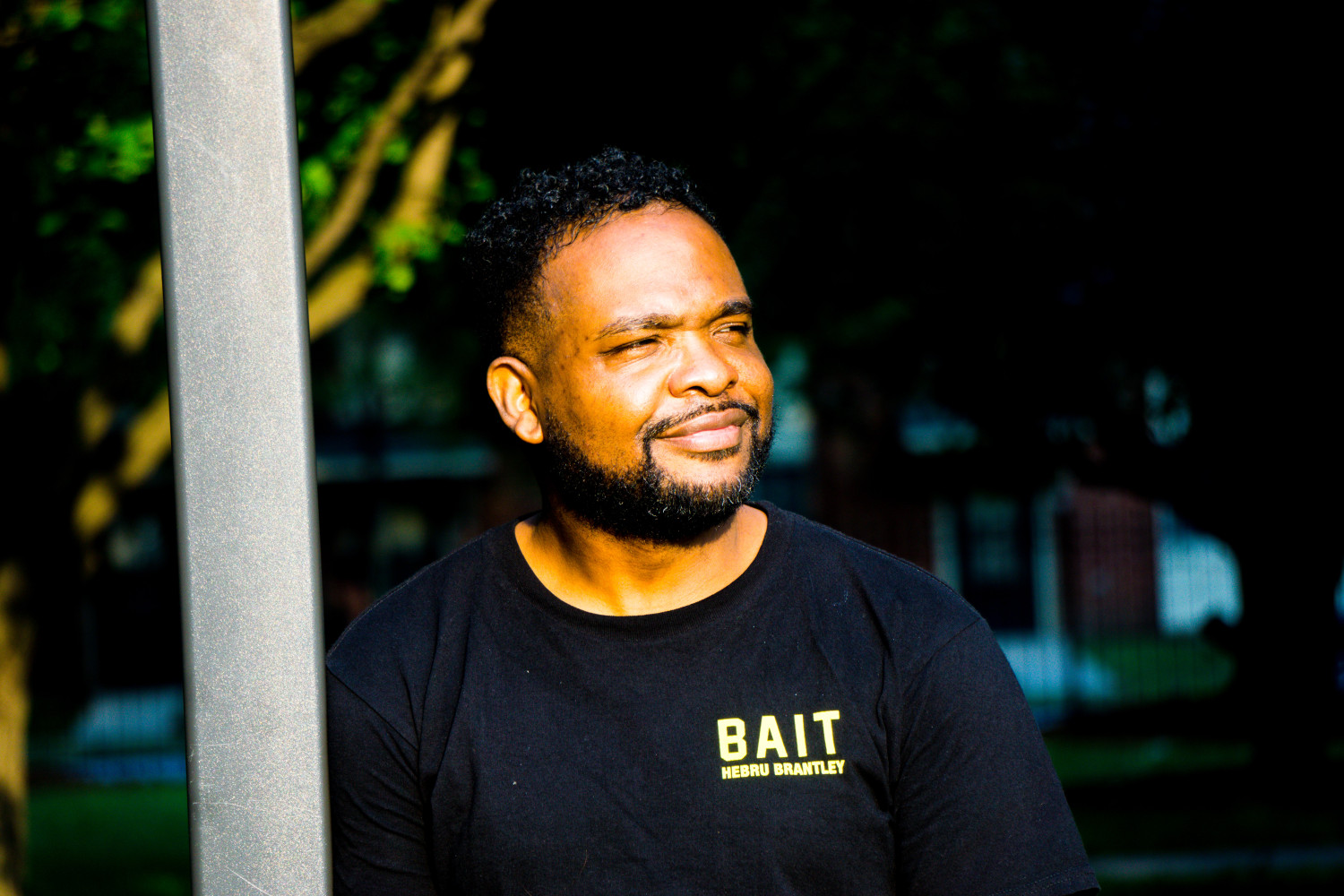
Clark reflects on his earlier days. | Photo credit: Shane Anthony
A Study of Oneself
For him, it was a mixture. His self-study involved running a show alongside Will Miles, they ran Two Black Dudes and a Mic. Will had a nice view to his evolution and it made for a better chemistry.
“He’s trying to tell you through his jokes he’s a sensitive dude.” Will commented. “He is more of a showman, I had to learn showmanship coming through a place of social anxiety. I just know we balance each other out. I had this likability, and Clark was funny, emotional, and sensitive. It mixed and felt right in the way.”
Miles credits other successes to Jones’ “South Side touch” and penchant for maintaining connections. Simultaneously, he was having trouble applying those things on his own.
At The Checkerboard Lounge, Clark ran into a brick wall; he consistently bombed. “The producer of the show was encouraging people like me to bomb because it was not his style.” He laid out the logic behind this, “they would throw me up sometimes to bomb as a break, so people can hate someone and make the regulars look better.”
One night however, he turned the tide. He smoked it. He snaps his finger to illustrate the jokes hitting over and over. We call that a murder. Clark Jones earned the respect of the producer and never went back. He didn’t want to. You can call that leaving the scene of the crime.

Jones breezes through his old stomping grounds, Whitney Young High School. | Photo credit: Shane Anthony
From Chicago to New York City
Some comedians feel a wave of villainous perception and lean into it, for both comfort and material. Clark stood firm. Two Black Dudes and a Mic was a great foundation. They began to have real people at a mic, and popularity spread with word of mouth. Chicago Reader said the show “unified the south and north side.”
One night, on a sidewalk, Clark met Kenny DeForest, a fellow stand-up comedian who was new at the time.
“We were riffing on being hip swinging cats,” Kenny laughed. “It was a jazz riff.”
After they became fast friends, Jones and Miles would have him on their show. DeForest would attend religiously, eventually forming a bond that took all three of them to New York City. They had just one U-Haul and a plan that fell apart quickly on arrival.
“We had this place all worked out,” Will said. “Then they saw us.”
When management encountered the group, they went back on their previous agreement. Miles believes it was due to racial profiling and discrimination; he would not be an outlier. Even today, New York has a huge housing crisis. Politico headlines like, “50 Years after Fair Housing Act, New York City still struggles with segregation” are a normal conversation.
Meaning that when these wise, educated Black men were not up to par with the standard of the realtors, they no longer had a home. “They told us, you can sleep in a warehouse.”
Though Will Miles’ brother lived nearby, he was determined not to leave his friends behind. They came together and would remain that way. They crashed in unsavory situations; even on the floor in a place that had breeding chickens near their heads. Short on time, they rushed into a Bushwick space.
Will remarked, “we didn’t really have a plan, we were just having fun.”
At the famous Brooklyn Knitting Factory, Hannibal Buress was running an insanely good show. The guys knew of it and Kenny notes that Clark prophesied something big. “How crazy would it be if Hannibal got too busy, and we took that over?”
“No, no.” Clark remembers it differently, laughing. “I said he was going to hand the show off; I never thought it would be to us.”
At that time, the guys were running their own show at Stand Up New York. “It was packed everytime.” Once, Hannibal’s girlfriend dropped in. “I believe she let him know that we were killing it and that may have led to him considering it.”
Either way, things came true. On a ride home, after opening for Buress, he asked Clark if he wanted to take the reigns from him. “I wasn’t going to do it without my boys. I’m not going to take on this big ass show by myself, I’mma make sure my boys eat.”
Once they did, and Hannibal was no longer around, the audience began to fade. “It was a huge drop off at first.” The guys never lost hope. “We had to build it back up, and we did, thank God. We did it off our own names.”
They kicked off a four-year run with Comedy at The Knitting Factory; it was a show that had massive weight. Clark Jones and Will Miles were hosting a myriad of talent, the likes of Ali Wong, Eric Andre, Neal Brennan and even Dave Chappelle. Jones didn’t stop there.
He aimed for more Black women on stage, eventually bringing in talent like Sydnee Washington and Chanel Ali. It was important for him to continue Buress’ mission; the goal was to have a foundation for Black artists to stand on.
“We had one of the few places industries would come,” he says, proudly. “It was helping Black comics and women get signed.”
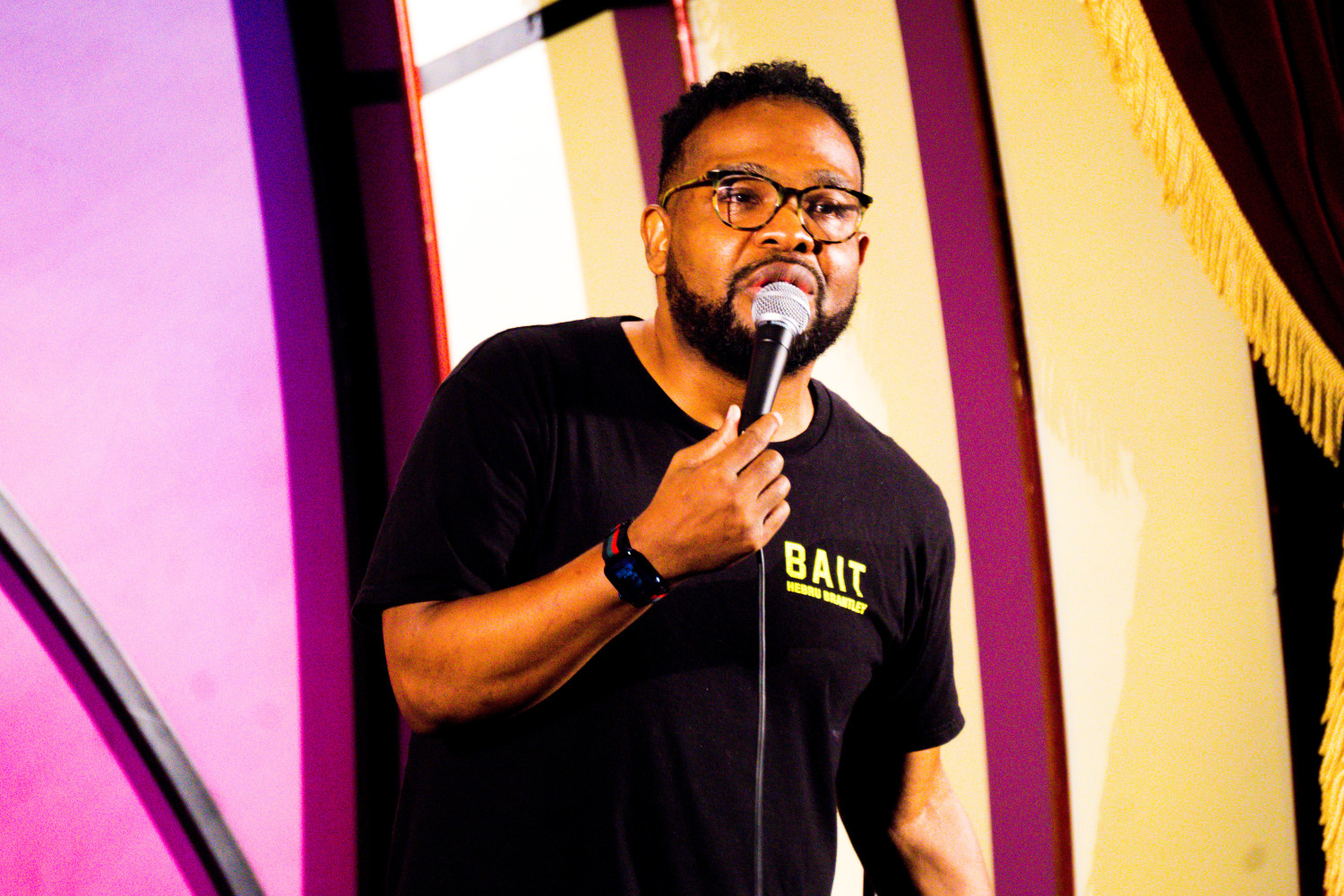
Clark performs for a sold-out crowd in Chicago. | Photo credit: Shane Anthony
Everyone, that is, except for him. It was bittersweet. He had Late Night shows contacting him to ask for people who featured on his show, but not Clark. “I’m like damn, when are you gonna book me?”
While others went on to make waves with managers, he was fighting through drama on the scene, with Will and Kenny by his side. Some New York comedians felt slighted having Chicago guys take over a popular show. Clark says it was tough, especially having no weekly pep talks from the previous producer to “hang in there.” He felt it was his team against the world.
The war had a big victory awaiting, especially since the battles allowed him to sharpen his tools. His friends noted how transformative his work was becoming, like a painter realizing his own masterpiece. He landed work with Night Train, Crashing, and dropped First of All, a brilliant debut to acclaim. He described it as, “The Sweet Baby Rays of comedy albums; it’s sweet, direct, and belongs in everyone’s house.”
Brad was more than happy. “I’m just proud to watch my brother live his dream and doing what he wants to do – that’s what makes me extremely proud.”
“Things were going amazing,” Clark remembered, before his face gave in. “Then the sky fell.”
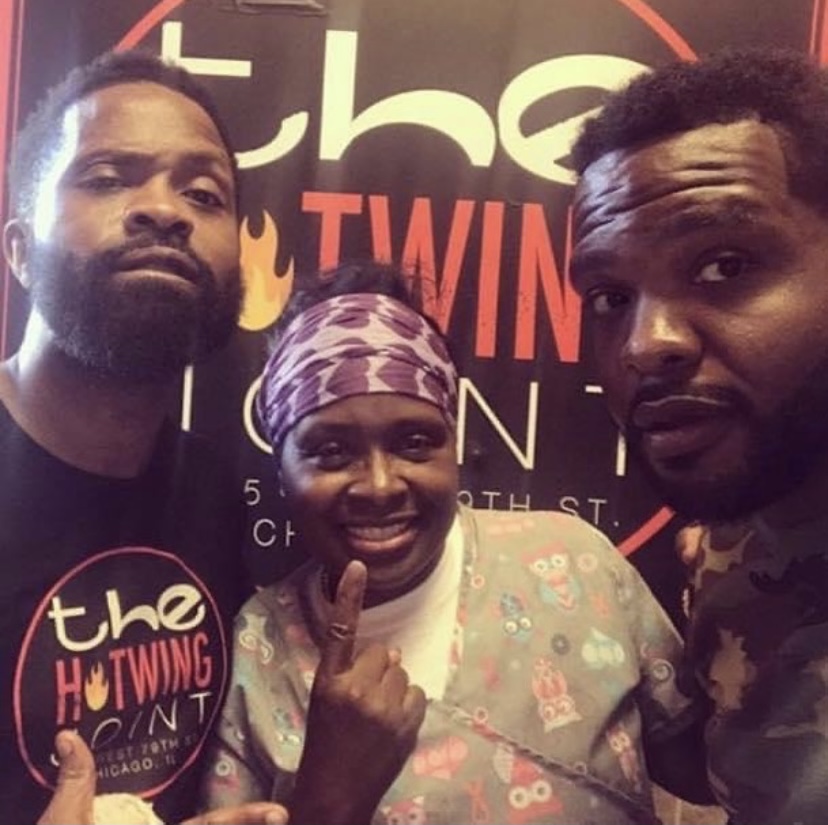
Marcus, left, Clark’s mother Denise, center, and Clark in an undated photo. | Sourced from Clark Jones’ Instagram
When the Paint Spills on the Canvas
In December of 2019, his mother died. The woman many of his friends remember as his best friend, confidante, and rock.
“He was unbelievably close to her,” Justin said, solemnly. “I remember witnessing their relationship and bond; the way they could talk to each other about anything.”
I ask Clark about his mother, Denise. “She taught me how to love another person. It can be smothering and it’s not for everybody – but it’s careful, constant, and with all your might.”
She gave him those things, funneling so much support, nourishment, and nurturing into her sons. She understood things that most refused to try, to being a hard-working provider. Denise was incredibly well read, hilarious, and spiritual. You can see glimpses of their relationship on his Instagram. In a birthday post, he shared a video of her.
She is a glowing, a near mirror image of her son. A gorgeous woman, with an enchanting smile and joyful disposition. She addresses the camera directly with a sheen of tears in her bright eyes.
“I just want to let Jehovah God know I am very, very appreciative for this day, this moment, for last night and an early rise. I am appreciative.” She is happily overwhelmed. She wishes everyone a good day, shows off a custom-made T-shirt, and even addresses Snoop Dogg, quoting a song of his. “I just want to tell you; I’m living my best life. I’m not going back and forth.” She starts laughing at herself.
It was easy to see the impact she had on him, and the devastation left in her absence. As if things could not get worse, life hit him again. He lost his step mother; the woman who had taught him many things. She taught him how to sew, make clothes, make boundaries, how to “steady the ship.” Most importantly, she showed him how to be tough. He would need those lessons.
His toughness was tested; it was a dark season. Over a short amount of time, he lost more of the people he loved. Just months later, the final blow came: Clark’s brother Marcus – the dancer, the idol, the artist – was murdered in Chicago.
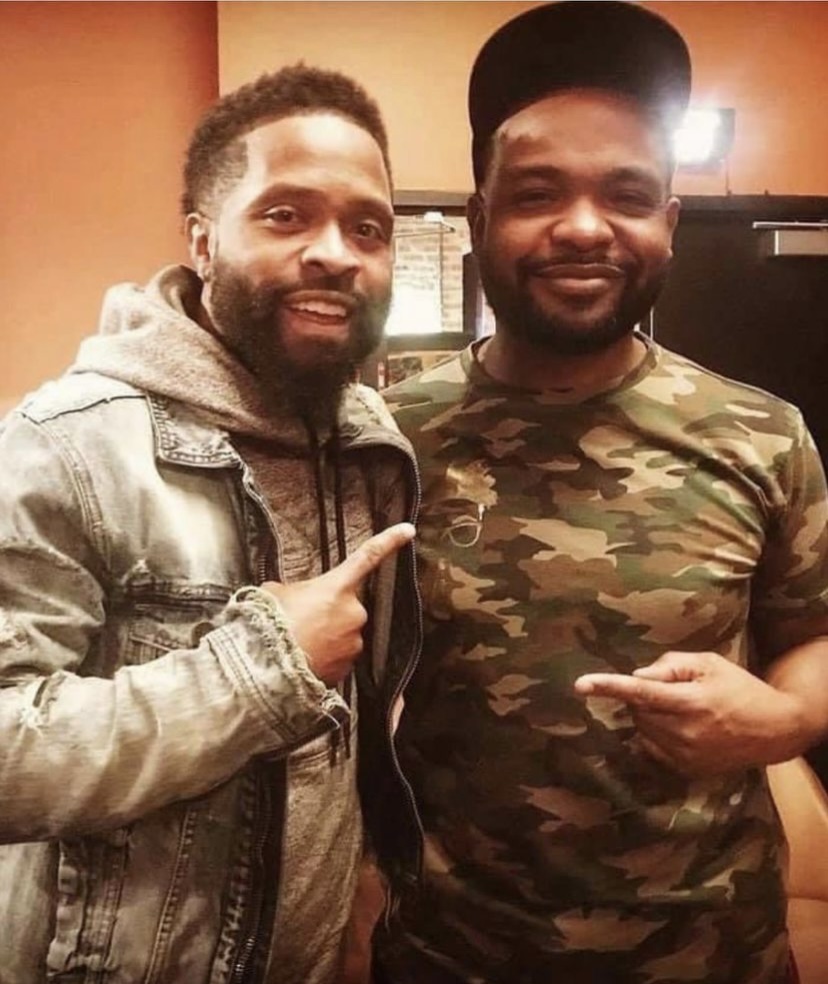
Marcus, left, happily poses with his baby brother, Clark. | Photo credit: Shane Anthony
Turning Spilled Paint Into Fine Art
Marcus taught him a host of things that made him great, but he also taught him patience. Clark acknowledges his brother was not perfect, and that he suffered from issues of growing as a Black man in Chicago. “He endured a lot so that I would not have to.”
If his brother was his shield, with him gone, Clark was vulnerable. He was shapeshifting before the eyes of his friends into someone they had not yet met. Justin remembers the period of “recasting.” He recalls the times his phone would ring close to three in the morning. “He would be terribly distraught, it was unusual for him.”
His friends rallied around him the best they could, even if sometimes they did not feel like enough. Will Miles put that fraught helplessness into words. “It was tough to watch. You’re supposed to tell your friends it all happened for a reason, they were so horrible we didn’t know if it happened for a reason.”
Clark truly grappled during this time, despite having a strong foundation. He felt as if he was Job from The Bible. “There were many instances of God testing his people with no explanation.”
He began to study every religion, extracting the good parts of everything. He found he loved the community of Judism, the humility of Buddihism, the discipline of Islam, and he was most familiar with Christianity. This spiritual run helped him cope and find some answers.
“I didn’t understand why this was happening, but I also didn’t understand why good things were happening. It’s easier to get into the major leagues than to get a TV writing job, as a new person, but I did. I didn’t question God when that happened, so why would I question him now?”
This prevalence is what makes him, him. He is a warrior, always strong and evolving. He admits sometimes he slips and gets weak. “I am human and I fall short.”
He returned to his art, eventually. His friends noticed a “Kanye like” change after the string of tragedies; some good, some bad, and some brilliant. They watched him almost rebirthed into a more touching, vulnerable soul attempting to make sense of a world that was so cruel.
“His art got dark, but very reflective,” Justin said. “I saw that evolution up close; it was like the Yeezus documentary almost.”
Kenny believes Clark is the very definition of turning tragedy into triumph. He’s proud of him for it and highly invested in his well-being, “He’s been through a lot, more than I could take, it’s been impressive to watch him and the way he’s handled it. He’s spring boarded forward while healing himself.”
The bonds around him grew tighter. Justin, Julian, Kenny, and Will are the people he calls his brothers. His own baby brother Brad laments how he’s grown much closer to Clark. “He continues to fight, he continues to be a role model for me, and he shows me how to keep going. He’s always evolving and still finds a way to teach me.”

Jones stands in the empty theater at Whitney Young Magnet School. | Photo cred: Shane Anthony
Like a true work of art, even throughout tragedy, Clark Jones finds a way to move people with his determination. He needs to make his family proud. He’s not trying to let anyone down.
“When he got back on stage,” Will said. “He turned that pain into projection. You can see more growth as a human. There’s more reflection on his life. I was like, ‘I’ve known you for 25 years and never known you to talk about this stuff.’ Those hard moments will never go away but he’s able to make art out of it.”
Sometime after his return, he got his long-awaited Comedy Central feature; alongside him on the line up were Will and Kenny. On his body, a jumpsuit. On his feet, a custom pair of Adizeros with Simeon colors and a portrait of his brother that he drew himself. He wanted Marcus on stage with him, after all, he was the reason he was there in the first place.
He nearly brought the house down, launching into his best, and deepest, material.
“I believe in Soulmates, I do – I just also believe that person might already be dead.”
There are points where the audience is laughing so deeply, you can see him beaming.
He touches on everything: online dating; unprepared parents; iconic musicals.
During the set, Jones is perfect. He is overflowing with confidence, fun, and engagement. It was a hint of things to come as another one of his jokes, on the great Martin Luther King Jr., made it onto the radar of the Lucas Bros as Jokes Comedians Would Steal.
He credits Ryan Moran for fulfilling his promise to get him and his guys on the show. The relevance of filming at The Brooklyn Knitting Factory was not lost. It was a full circle moment.
His friends were emotional while reflecting.
“You will never meet a more authentic, transparent and true person,” Katrina began. “He’s always been who he is and he doesn’t let anyone take that.”
Julian says Clark has become a better story teller.
“The experiences of his life have also made him a stronger man. You go through the industry and get chewed up a time or two, it gives you a steel skin that I notice now. That was not there 10 years ago. It just wasn’t there – he’s got that kind of resilience now that whatever he wants to do – will be possible.”
Julian DeShazier
An Ever-Evolving Work of Art
That’s in line with how his friends, colleagues, and family alike see it. Clark Jones is an ever-evolving work of art; a painting that is consistently getting colors added but never lost. He is transformative, hungry, persistent, different, tenacious, and cautiously brilliant. He is not shy to admit tragedies wounded him and that his pain is not episodic. Clark shouts out therapy for saving his life, as he is unsure if he would be here without it. “I would definitely be in the wind.”
Today, he is sailing the skies limitlessly. As a well-respected mentor, comedian, artist, brother, and friend, he has a mind that is constantly besting itself. Each idea is better than the last, each message deeper and more powerful.
He refuses to disclose the things he has planned, his friends are much more comfortable guessing though.
A couple picture him as a Late Night host; the next big actor; the award-winning screenwriter; a director; a sketch show producer; a comedian with an HBO or Netflix special.
One thing is for sure, no matter what it is, much like the rest of his life – we will never know. It will pop up and surprise us. It will be on brand for Clark Jones, an endless Renaissance period transcending mediums to get his message across.
I think Denise Porter can sum it up best for her son.
“I’m living my best life. My later years, praise God, have been my best years. My early years were my trials, and through those, I have learned to lean on Jesus.”


